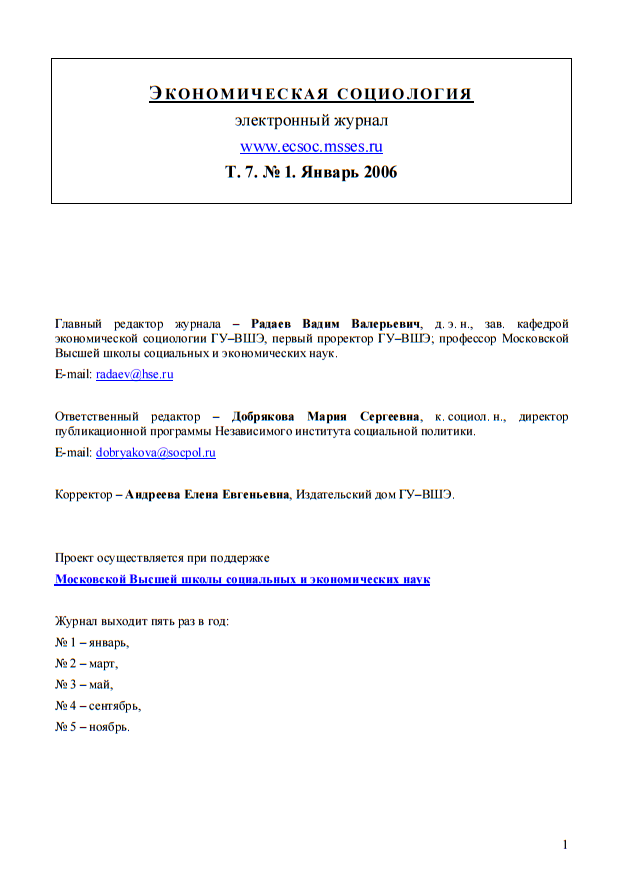Bureaucracy and Growth: A Cross-National Analysis of the Effects of "Weberian" State Structures on Economic Growth
Abstract
Since Weber’s classical works, that were published more than a hundred years ago, sociologist still pay a lot of attention to the investigation of role of bureaucratic authorities in the development of economic growth. Basing on new original data we analyzed the characteristics of leading state economic structures in 35 developing countries in the period of 1970-1990 as well as the growth rates in these countries. We suggest the Weberianness scale which has a simple way of estimating of the meritocratic hiring of the employees and predictable long-term waged career growth. We find out that these Weber indicators considerably increase the likelihood of economic development even though we control the GDP per capita and the amount of human capital. Our results prove that Weberianness should be included in the models of economic development as one of the main factors. Moreover the politicians should more focus on establishing qualitative bureaucratic structures while sociologists should pay more attention to the studies of state bureaucracies differences.













